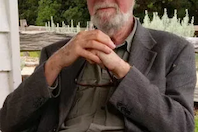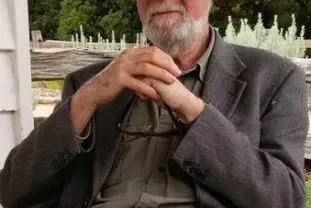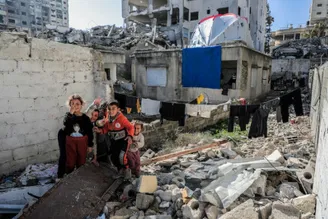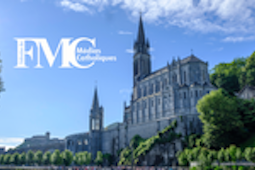Ian Linden: God's diplomats: Putin's war and the pursuit of peace
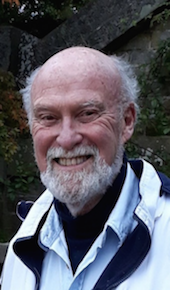
Professor Ian Linden
The Vatican is the world's smallest sovereign State. It would fit easily into Hyde Park. Unlike all other States it has no military, economic or territorial interests to defend; but it does have the safety and wellbeing of 1.36 billion Roman Catholics to consider. The Vatican describes its foreign policy as 'positive neutrality'.
As the largest non-governmental provider of health care and education around the world, despite being based in Rome, the Catholic Church's vision today is global rather than a religious version of Western policies. As a journalist and contributor to Foreign Affairs, a respected analytical magazine on US foreign policy, Victor Gaetan describes in God's Diplomats: Pope Francis, Vatican Diplomacy and America's Armageddon (the Middle East) how unwanted tension with the USA comes with the Pope's job.
The Pontifical Academy of Ecclesiastical Nobles - it sounds even grander in Italian - now called the Pontifical Ecclesiastical Academy, was founded in 1701. It trains Vatican diplomats and is, of course, international. Priests in training have to become proficient in two languages other than their own and, thanks to the present Pope, must serve as a missionary for at least a year. From its alumni are drawn the staff of the Vatican Secretariat of State currently led by Cardinal Pietro Parolin with Liverpool-born Archbishop Paul Gallagher, Secretary for Relations with other States, having a hands-on role as interlocutor and trouble-shooter.
Peace-building is a longstanding priority for Catholic diplomacy and there have been important interventions and successes. Thanks to the Sant'Egidio community based in Trastevere, Catholic leaders played a key role mediating an end to the civil war in Mozambique in 1992. Pope John Paul II himself was directly involved when Argentina nearly went to war with Chile in December 1978 over contested islands in the Beagle Channel. The papal envoy successfully urged restraint on the Argentine military junta. In his efforts to end the civil war in the Central African Republic, Francis himself has made numerous efforts to bring peace, not always successfully, and has taken considerable security risks even visiting in solidarity a mosque besieged by a Christian militia. He is personally involved in an ecumenical effort to mediate peace in South Sudan. In 2019, he invited South Sudan's rival leaders for an Easter summit in the Vatican, kissing their feet in an extraordinary and dramatic plea for peace.
But the pursuit of positive neutrality has brought Pope Francis some bad Press over Ukraine. The Vatican as an important moral voice is expected to denounce Putin's brutal aggression. Its diplomats, the papal nuncios (envoys) in different countries are perceived as no different from any other diplomats. But they are different. For a start their priorities, apart importantly from the welfare of local Churches, are focused on peace-making, human rights and more recently climate change. The language of their public pronouncements, framed to serve these longer term goals, is often cautious, sometimes opaque.
Criticisms of Pope Francis over Ukraine often omit inconvenient contradictory evidence or show ignorance of the communications culture of the Vatican. The Pope, for example hasn't named Putin as the aggressor because the Vatican doesn't name and shame. Nor has he condemned Russia but here is Archbishop Gallagher speaking in the name of the Holy See in Kyiv on 20 May this year: "My visit is intended to demonstrate the closeness of the Holy See and Pope Francis to the Ukrainian people, particularly in light of Russia's aggression against Ukraine".
The Vatican's approach to Russia is entangled with its long term goal of reconciliation with Orthodoxy, and an ending of the 'Great Schism' of 1054. This has resulted in an abortive attempt to influence the thoroughly compromised Patriarch Kirill of Moscow and all Russia, Primate of the Russian Orthodox Church. Francis met Kirill for the first time on 12 February 2016, a meeting which had taken two years to set up. In the unusual venue of Havana International Airport, they co-signed a bland declaration covering a range of topics. But by March 2022, exasperated at Kirill's long justification for Russia's actions on a Zoom call, the tone changed; Francis warned against becoming 'state clerics'. A month and a half later in an interview with Corriere della Sera, off-guard he forgot protocol saying 'the Patriarch cannot transform himself into Putin's altar-boy'. In a 2 April speech in Valetta, Malta he returned to Vatican ways: "Once again" he said, "some potentate sadly caught up in anachronistic claims of nationalist interests is provoking and fomenting conflicts". Back in Rome on 6 April Francis kissed a worn Ukrainian flag from Bucha - site of multiple Russian war crimes. Certainly stretching to its limits his Secretary of State's, Cardinal Pietro Parolin's, policy of positive neutrality in wars, put before the UN General Assembly on 25 September 2015.
Rome has no leverage in Moscow where Catholicism appears as an intruder in the land of Orthodoxy. By way of comparison, the success of António Guterres, the UN Secretary-General, in opening Odessa to grain ships is attributed in part to the considerable number of African and other countries whose support for Russia at the UN was at risk as Putin seemed set on starving their populations.
For diplomacy to work there has to be some leverage other than moral, some confluence of interests between the belligerents. Popes and God's diplomats have faith but they have no formula for moving mountains. They can and do make mistakes in balancing hope with realism, a radical 'prophetic voice' with care for local Churches. And there is always the shadow of Pius XII's gravely inadequate public response to the Holocaust. When it finally comes, mediation bringing an end to Putin's war will most likely be in secular hands and, perhaps, led by the Secretary-General of the UN. Meanwhile press coverage of the Vatican and Putin's war could do with a little rebalancing and greater understanding.
Professor Ian Linden is Visiting Professor at St Mary's University, Strawberry Hill, London. A past director of the Catholic Institute for International Relations, he was awarded a CMG for his work for human rights in 2000. He has also been an adviser on Europe and Justice and Peace issues to the Department of International Affairs of the Catholic Bishops Conference of England and Wales. Ian chairs a new charity for After-school schooling in Beirut for Syrian refugees and Lebanese kids in danger of dropping out partnering with CARITAS Lebanon and work on board of Las Casas Institute in Oxford with Richard Finn OP. His latest book was Global Catholicism published by Hurst in 2009.
Visit his website here: www.ianlinden.com



